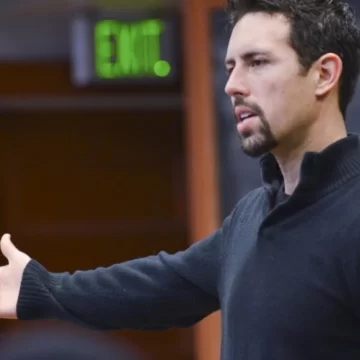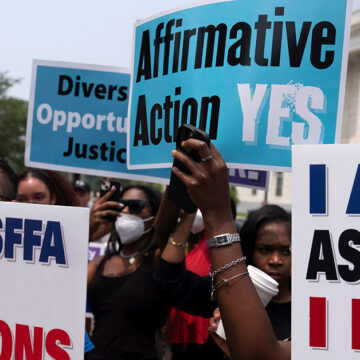Ethics
-
Ethics, Full Podcast Archive, Philosophy
EP23: Is Monogamy Immoral? (EP19 follow-up Feat. Harry Chalmers)
Listen nowOn this episode, we return for a sequel to EP19’s topic: the potential immorality of monogamy. On that episode, we discussed Harry Chalmers’ paper “Is…
-
Ethics, Full Podcast Archive, Philosophy, Psychology
EP19: Is Monogamy Morally Permissible (On Harry Chalmers’ Argument Against Monogamy)
Listen nowIn this episode, we examine Harry Chalmers’ provocative take: monogamy is morally suspect. Why should we treat restricting romantic partners any differently than restricting friendships? Since restricting our partner’s friends would seem pathological, so too, restricting sexual and romantic partners.
-
Ethics, Full Podcast Archive, Political Theory
EP18: Is Free Speech Actually Bad? (On Brian Leiter’s Case Against Free Speech)
Listen nowOn this episode, we dive deep into Brian Leiter’s “The Case Against Free Speech.” Leiter questions the sanctity of free speech, suggesting that not all speech deserves equal protection if it causes societal harm.
-
Ethics, Full Podcast Archive, Philosophy
EP17: Should We Sacrifice the Utilitarians First? (Smilansky’s Designer Ethics) Ft. Ben Burgis
Listen nowIn this episode, we delve into Saul Smilansky’s provocative paper, “Should We Sacrifice the Utilitarians First?” which introduces the concept of “Designer Ethics” (DE). Smilansky argues that individuals’ moral views should influence how they are treated in moral dilemmas
-
Ethics, Full Podcast Archive, Philosophy, Political Theory
EP16: Should Philosophers Stay Out Of Politics? (On van der Vossen’s Defence of The Ivory Tower)
Listen nowOn this episode, we read Bass van der Vossen’s “In defense of the ivory tower”. On this view, philosophers should stay in their lane. That lane being, the pursuit of Truth! Partisanship is opposed to truth and is a danger to academic integrity.
-
Criminal Justice, Ethics, Full Podcast Archive, Philosophy
EP15: Is Zoophilia Morally Permissible? (On Bensto’s Defence of Zoophilia)
Listen nowHide your cats, hide your dogs, we’re talking about Zoophilia. In a 2023 article, Bensto (pseudonym) attacks one of our most deeply entrenched social taboos: animal-human sex.
-
Ethics, Full Podcast Archive, Philosophy
EP 14: What if Moral Philosophy is Immoral? (On Brennan and Freiman’s Moral Philosophy’s Moral Risk)
Listen nowIn this episode, we debate a dilemma at the root of moral philosophical inquiry: either philosophers should avoid risky topics that could violate moral norms (such as expressive duties not to offend), or they must be granted some level of exemption from these duties in their professional work.
-
Ethics, Ethnography, Full Podcast Archive, Political Theory
EP12: Is Making Friends with the Far-Right a Good Way to Research Them? (ft. Benjamin Teitelbaum)
Listen nowWe interview Benjamin Teitelbaum about his controversial ethnographic methods and the unsavoury people he studies. “They go by many names: outsiders describe them as right-wing extremists, organized racists, or neofascists, and they tend to call themselves nationalists. I call them friends,” writes Teitelbaum.
-
Ethics, Full Podcast Archive, Philosophy
EP7: Should We Support Affirmative Action? (On Pojman’s Case Against Affirmative Action)
Listen nowOn this episode, we read Louis Pojman’s 1998 article, “The Case Against Affirmative Action”. We debate whether any of his arguments against the practice of affirmative action have any merit from the perspective of left politics. We also consider whether class-based affirmative action is preferable.
-
Ethics, Full Podcast Archive, Philosophy
EP4: Is it Morally Wrong to Prefer Attractive Partners? (On ‘Lookism’ and William D’Alessandro)
Listen nowIf your partner is attractive, then you might be part of the problem. At least, that’s what one edgelord philosopher is suggesting. We discuss William D’Alessandro’s forthcoming paper, “Is It Bad to Prefer Attractive Partners?” (in the Journal of the American Philosophical Association). Is this “lookism” a kind of unjustified and harmful discrimination? If it is, is it realistic to expect us to modify our personal preferences for justice-oriented reasons?










